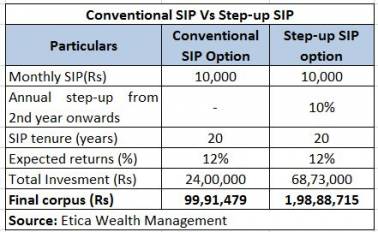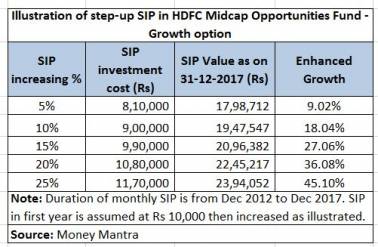Today mutual funds offer a number of different types of debt funds that cater to the investment requirement across the segment. As a thumb rule, the longer the investment horizon, the better is one's ability to withstand intermediate volatility and, thereby, enhance expected return.
Understanding price-yield movement
A basic fundamental of bond investing that yield and price are inversely related may not be commonly understood. Therefore it is important that investors take efforts to educate themselves to understand the product before taking the investment decision.
A simple way of understanding debt funds is to think of them simply as passing through the interest and capital gain income that they receive from the bonds they invest in, after deducting expenses and fees. There are a couple of further complexities to this.
One, unlike fixed deposits, mutual funds invest in bonds that are tradable. Two, in the debt market, prices of different bonds can rise or fall, just like they do on stock markets. Debt market focuses on various parameters such as global market development, interest rate cycles, inflation and credit pick-up. Bond prices are affected by the interest rate cycles and policy stance of central banks.
Don't panic if yields move up
Some investors withdraw untimely from debt funds because fear of loss is irrationally higher; the perception that the debt market does not witness volatility leads to panic when there is an upward movement in yields, adversely impacting returns during that period.
In current scenario no economy can sustain being standalone, therefore development in one part of the world is naturally going to affect the linked economy. Like in every other asset class, investors need to show patience in this asset also. An investor with long-term horizon should remain invested to benefit the most from the interest rate cycle.
Choose the right kind of fund
An investor should build his/her debt portfolio keeping in mind the time horizon and risk profile and invest in fund strategy matching their investment need.
Debt funds can broadly be categorised in the following three groups:
(1) For short-term investment-Liquid Fund/Low Duration Funds
(2) For medium term investment, defined as 18 months to three years – Short Term fund/Credit Risk Funds
(3) For long-term investment horizon of over three years – Bond Funds
Generally speaking, risk matrix in debt funds is measured on two major counts. Firstly, the average maturity of the fund's investments and secondly the average credit profile of the fund. Higher the average maturity, the more volatile and risky is a fund considered and similarly, the lower the rating profile of a fund's investment, the more risky is it considered.
Longer maturity risk is normally due to fluctuation in bond prices and is considered recoverable over long periods. Credit risk is typically binary in nature, where if the investee company defaults in repayments on due date, the subsequent recovery is generally unlikely.
Kinds of debt funds
Liquid Funds, typically invest in papers of maturity up to 91 days. Investors with very short- term horizon should consider such funds, especially for creating an emergency fund corpus (which should be ideally three to six months income).
Low-duration fund can have average Macaulay duration of six to 12 months. If investor has investment horizon matching the above, this category may suit them. Short-duration funds typically have maturity between one and three years. Credit risk funds generally invest in lower rated papers to capture higher carry yields. Such funds may suit medium term investors.
Bond funds typically can invest in long-term papers. Due to higher average maturity, typically, returns are very volatile and highly sensitive to change in interest rates. However, past experience suggests that over interest rate cycles, these funds in the long term have provided good returns. Hence, a long term investor should consider such funds.
Another way of managing the interest rate volatility is through Dynamic Bond Funds, which can increase or reduce their duration based on the interest rate outlook.
DEMYSTIFYING DEBT FUNDS
- There are debt funds to match varying investment horizons
- Debt funds can also suffer losses like equity funds
- Key is to have patience and wait out the volatility

